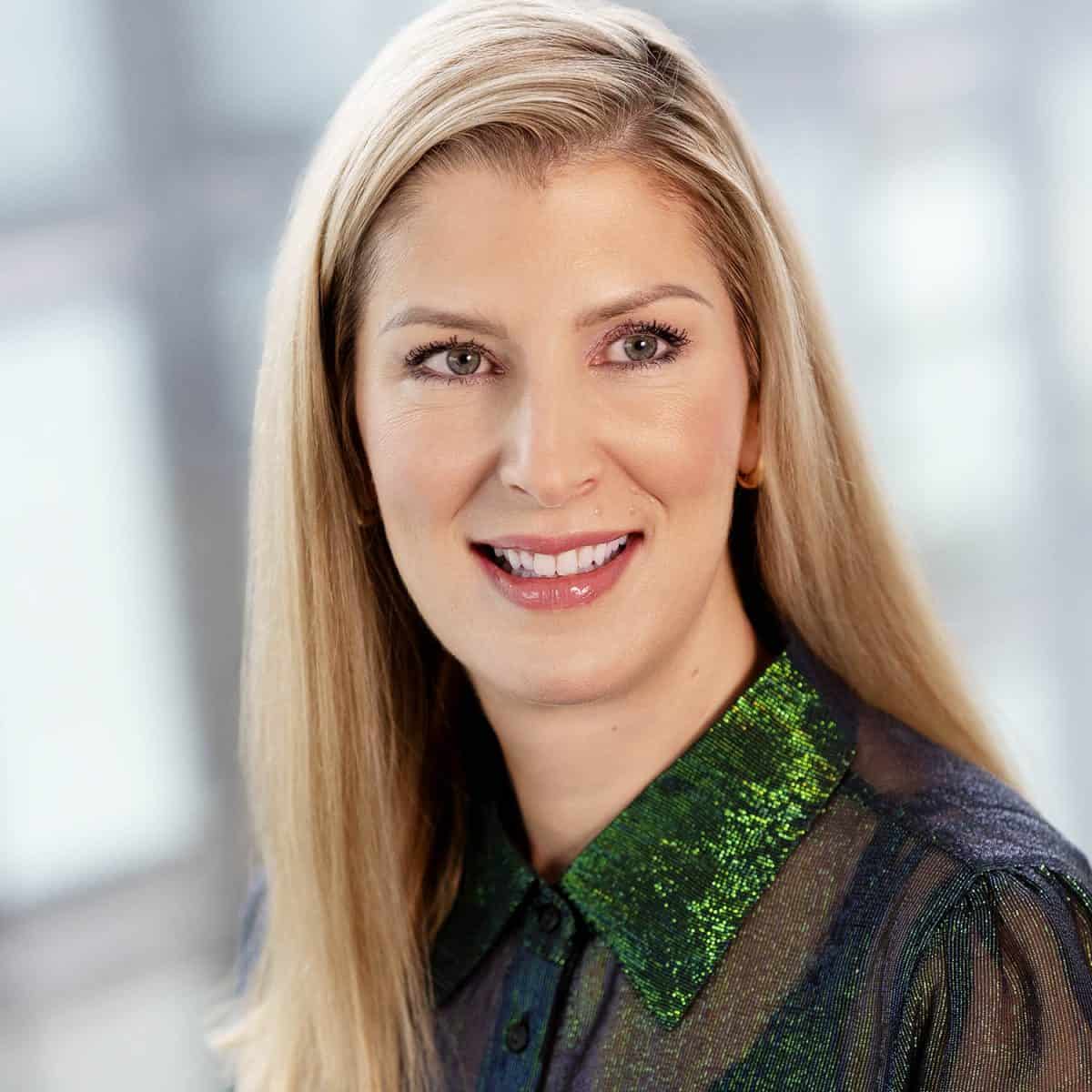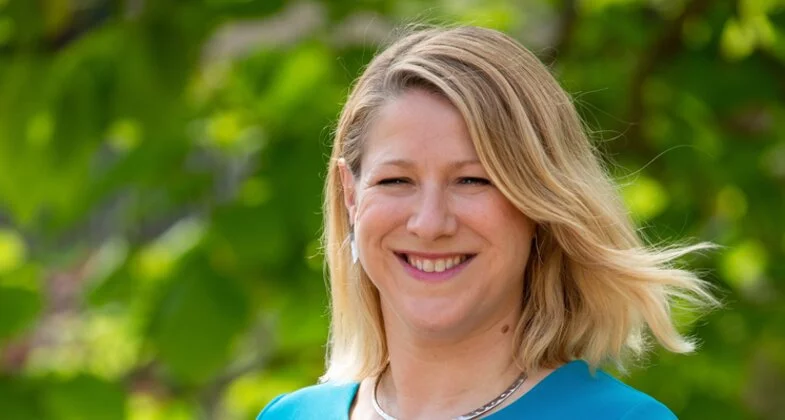Five minutes with…Emily Carter, CEO at Royal Trinity Hospice
Berwick Partners were delighted to support Royal Trinity Hospice with the recruitment of their new CEO. Emily Carter, who took up the role at the end of 2021, brings 15 years of leadership experience within the National Health Service. She was previously the Divisional Director of Operations for acute services at the Royal London Hospital and delivered the emergency care response to the Covid-19 pandemic.
Sandra Hamovic caught up with Emily to discuss what inspired her to work for the hospice, her plans for her first few months in the role and the skills which she feels will be critical in leading the organisation forward.
What inspired you to want to work in the not-for-profit sector and in particular Royal Trinity Hospice?
It was not a structured decision and was complete happenstance! I was feeling ready for a new challenge and was exploring the obvious next step, a Chief Operating Officer of a large teaching hospital, but this opportunity at Trinity came up unexpectedly. I had never considered a move to a not-for-profit organisation or a hospice, but the advert caught my eye and the more I engaged with the process and with Trinity, the more I liked what I saw.
The role met a lot of the criteria I was looking for: doing something meaningful; clear career progression; and something that I would find difficult because I don’t like being bored. I really liked that there were so many extra elements to this role that I had not experienced before, such as running a charity and a retail business, fundraising and working with a Board of Trustees. The role also worked on a personal basis as it allows me to have a little more balance in my life and time with my children than running a big and busy hospital.
I had very positive interactions with the organisation at every stage of the recruitment process. There were multiple opportunities to meet staff and trustees, which meant I had a really good understanding of what it would be like to work here and I was able to make a well informed decision to accept the role. I am passionate about delivering excellence in healthcare and I saw a chance to do just that here.
What was your approach to transitioning to a new working environment?
My preparation work for the recruitment process was sufficiently thorough that I really needed to wait until I started at Trinity, plus I was predominantly focused on finishing and handing over my previous role. I had decided that my first month would be focussed on gaining a detailed understanding of the organisation and spending time with a broad range of staff, and so I arranged for a month of induction where I could meet as many staff as possible through drop-in sessions, shadowing clinical staff and non-clinical staff in support functions, visiting all 20 charity shops, as well as spending time with the senior leadership team. I also considered what first impression I wanted to give as CEO and aimed to position myself as a visible and accessible leader, as someone who wanted to know what the staff really think.
What was your action plan for your first 100 days at Royal Trinity Hospice?
In summary, I wanted to very quickly meet as many key people and partners as possible and to be up and running as CEO, understanding the nuance of the organisation, by the end of my first 100 days. I also committed to develop a new five year organisation strategy within my first six months
The plan for my first 100 days consisted of an intense first month of internal engagement, followed by wider engagement for the following month with trustees, commissioners, other hospices, donors, and other partners. I planned to use these induction meetings to inform strategy development.
Coming into Trinity, did you find yourself working in a different way and using different skills compared to your previous role?
I feel like I am working in a different way, but as a continuation of what I have done before – using the same skills but delivered in a different way. I also came from a very tough environment in the hospital and I think running the hospice brings out a nicer side of me!
There is definitely something different and really lovely about being in a relatively small organisation – I find it particularly satisfying knowing who everybody is and getting involved in areas that I would never have been involved in at the hospital. I am enjoying changing people’s perceptions of a CEO and I am proud to have created a culture where everybody feels comfortable talking to me about anything. I feel like I’ve got the pulse of the organisation.
What have been the main challenges you’ve faced so far?
In advance of starting, I was most anxious about working with a Board of Trustees for the first time and making sure I practised good governance and established appropriate oversight and assurance. I spent quite a lot of time talking to other CEOs about this to help guide me in my interactions with the Chair and other trustees, which was enormously helpful and has meant that this has not felt like a challenge at all!
The main challenge I have faced has been how to introduce change, to areas where improvement was needed, in a way that feels appropriately ambitious and challenging yet non-threatening to the workforce. I am conscious that the pace I am used to working at is faster than the hospice is used to and I have had to adjust my approach accordingly. It is a very delicate balance.
With a clear ambition to expand Royal Trinity Hospice’s reach and impact further, what are the skills which you feel are critical to enable you to lead the organisation forward?
Having quickly developed a strategy and got the organisation excited about the future, it’s all about delivery now! As CEO, I will be providing leadership and support to my team on how we implement the plans for the next five years across all areas of the business – transformation of our clinical services; strengthening our support functions; expanding our retail operations; maintaining a stable fundraising income stream; and introducing new offers to our patients and families.
However I think that the most important skill I need is the ability to be really flexible and multi-task – to be a ‘jack-of-all-trades’. I run from my walkaround in the basement where I’ve been chatting to the chefs in the kitchen to show a major donor around the inpatient unit. Then I’ll be on a conference call with the NHS commissioners to negotiate an uplift to our contract. I’ll use the next hour to review our new anti-racism action statement, before heading to the board room for the patient services committee. I thrive on the variety and, at times, the randomness!
Do you have any advice to those making a similar move into their first charity CEO role.
Really listen to your staff. The first month I spent listening and making an enormous effort to speak with people not only gave me the insight I needed into the organisation, but also set the tone about what type of CEO I would be. It helped me identify some ‘quick wins’ that were reasonably straight forward to deliver but made a massive impact to staff. It helped me develop relationships that are essential to do my job well.
For more information, please contact Sandra Hamovic, who is an Associate Partner in the Not for Profit practice.






